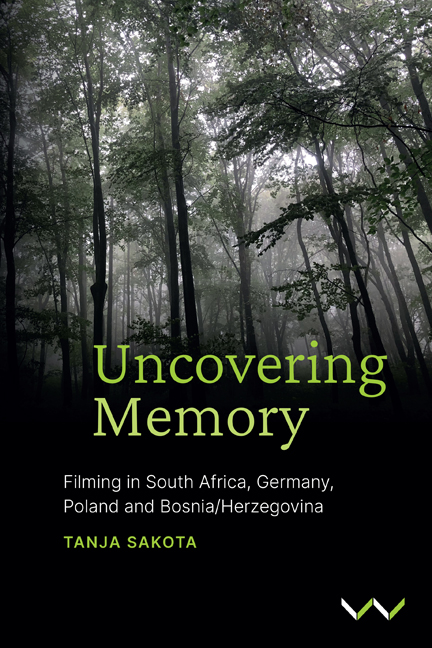Book contents
- Frontmatter
- Dedication
- Contents
- List of Images
- Foreword
- Acknowledgements
- Map of Africa and Europe
- Practice-Based Research, Teaching and Learning
- Part I Working With Students: Cape Town, Johannesburg, Berlin
- Part II Working With Peers: Constitution Hill, Johannesburg
- Part III Working With Myself: Poland, Germany, Bosnia/Herzegovina, South Africa
- Moving Forward
- Film Credits
- Glossary of Terms
- Notes
- Bibliography
- Index
Chapter 8 - Towards a future past workshop: a German perspective
Published online by Cambridge University Press: 24 November 2023
- Frontmatter
- Dedication
- Contents
- List of Images
- Foreword
- Acknowledgements
- Map of Africa and Europe
- Practice-Based Research, Teaching and Learning
- Part I Working With Students: Cape Town, Johannesburg, Berlin
- Part II Working With Peers: Constitution Hill, Johannesburg
- Part III Working With Myself: Poland, Germany, Bosnia/Herzegovina, South Africa
- Moving Forward
- Film Credits
- Glossary of Terms
- Notes
- Bibliography
- Index
Summary
The instability of memory does not imply the insignificance of the past, but rather the instability is what makes memory a vibrant and active connection to remember the past. The memorial accesses the past through memory: what we remember and how we feel about the memory the monument evokes. To reiterate: memory is fluid, selective and at times unreliable. The important point is that memory relies on emotion and it is the sentiment that the memory evokes that can bring it into the political arena. Once the memory moves into this arena, its meaning and context shift because it no longer represents the personal but rather the political condition of a group, community, nation or state. South Africa's past plays a crucial role in shaping her contemporary identity. The same can be said about Germany. It is a country and nation that has accepted its role as perpetrator post-1945, even though not all Germans followed the Nazi ideology. Nevertheless, as a nation, it has actively sought to create memory sites that not only remember the Holocaust/Shoah, but also act as symbols to fight war, fascism and deportation, and to remember lost communities. James Young (1993, 20) identifies the Germans as ‘no less industrious than the generations preceding them, German teenagers now work as hard at constructing memorials as their parents did in rebuilding the country after the war, as their grandparents did in building the Third Reich itself.’
The active form of memory has had a fundamental role as each generation has had to mould its own identity and face the demons of its past.
THE GERMAN CONNECTION
Questions concerning how forms of knowledge regarding genocides have shifted from the realm of traditional history to centring the voices of personal testimony are not just relevant to the Shoah but also globally. This is evident in the deliberations concerning multiple genocides such as the Herero genocide in South West Africa (Namibia), the Rwandan genocide (Rwanda) led by Paul Kagame, the genocide in Chile under Augusto Pinochet, the genocide in Argentina under Julio Argentino Roca and the genocide in Cambodia under Pol Pot. This restructuring of knowledge making has started to replace discourses of history and is relevant to the writing of Marianne Hirsch (2010). The approach shifts from the conventions of traditional sources of knowledge and history.
- Type
- Chapter
- Information
- Uncovering MemoryFilming in South Africa, Germany, Poland and Bosnia/Herzegovina, pp. 79 - 100Publisher: Wits University PressPrint publication year: 2023



